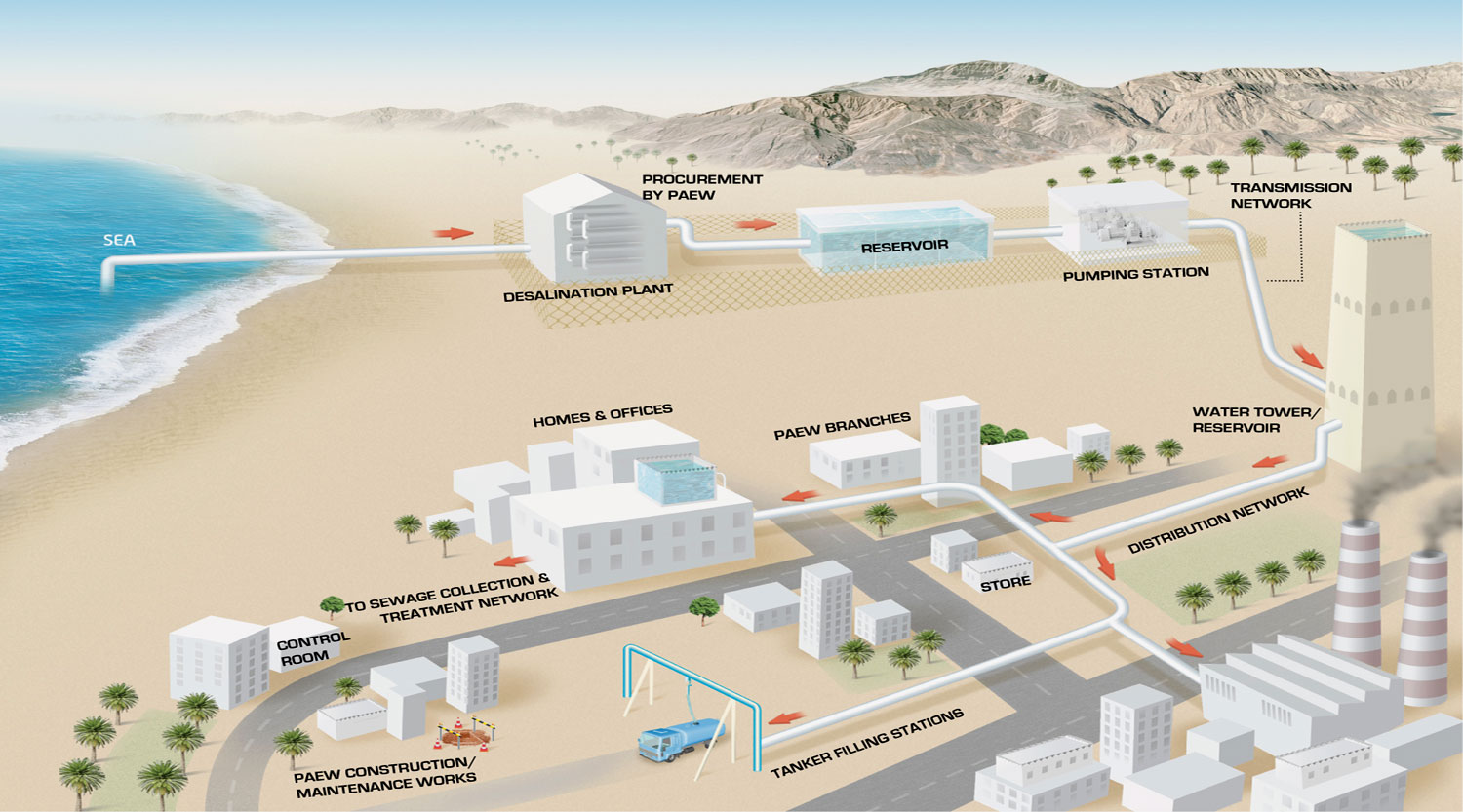

MUSCAT, SEPT 5 - Oman’s Public Authority for Electricity and Water (PAEW) — also known as ‘Diam’ — has floated tenders for a pair of small water desalination plants to be implemented for the first time on a Build-Own-Operate (BOO) basis.
It follows a new project delivery model adopted by the Authority in 2015 that advocates a role for private investors in the development of small water schemes in isolated parts of the Sultanate. This is in contrast to the PAEW’s longstanding practice of procuring water desalination capacity outside of the grid-connected zones based on an Engineering — Procurement — Construction (EPC) basis.
In the first-ever implementation of the new model by the PAEW, BOO-based small desalination plants are planned in Mahout Wilayat (Wusta Governorate) and Musandam Governorate. Offers are due in by October 16, 2017 for either of these two projects.
According to the Authority, small water desalination schemes will be procured on a Build-Own-Operate (BOO) basis primarily in areas that are served by isolated water networks, tanker filling stations or small desalination plants. Supply in such areas is typically handled by the PAEW. However, where water production is co-located with electricity generation, supplies are managed by the Rural Areas Electricity Company (RAECO).
“PAEW has now adopted a policy of ‘Build Own Operate’ for these areas — new plants will be procured from the private sector which will take the responsibility for long term performance with PAEW buying the water under contract. Pilot contracts have shown considerable savings and this model is now in use across PAEW’s area,” the Authority explained.
Remote villages in Musandam Governorate presently served by small sea-borne water tankers are seen as ideal for BOO-based desalination projects, according to the Authority. So are towns in Wusta Governorate that are located far outside main or isolated water networks.
Small desalination plants, which typically range in capacity from 1,000 m3/day to 10,000 m3/day, contributed around 11 million cubic metres of potable water to small outlying communities around the Sultanate in 2015. This compares with an aggregate output of 288.6 million generated by large, predominantly privately owned schemes.
PAEW owns as many as 40 small desalination plants offering a total production capacity of around 45,000 m3/day. These are distributed around the rural parts of eight governorates of the Sultanate, notably Muscat Al Dakhiliyah, North and South Al Sharqiyah, Al Dhahirah, Musandam, Al Wusta and North Al Batinah.
Conrad Prabhu
Oman Observer is now on the WhatsApp channel. Click here



